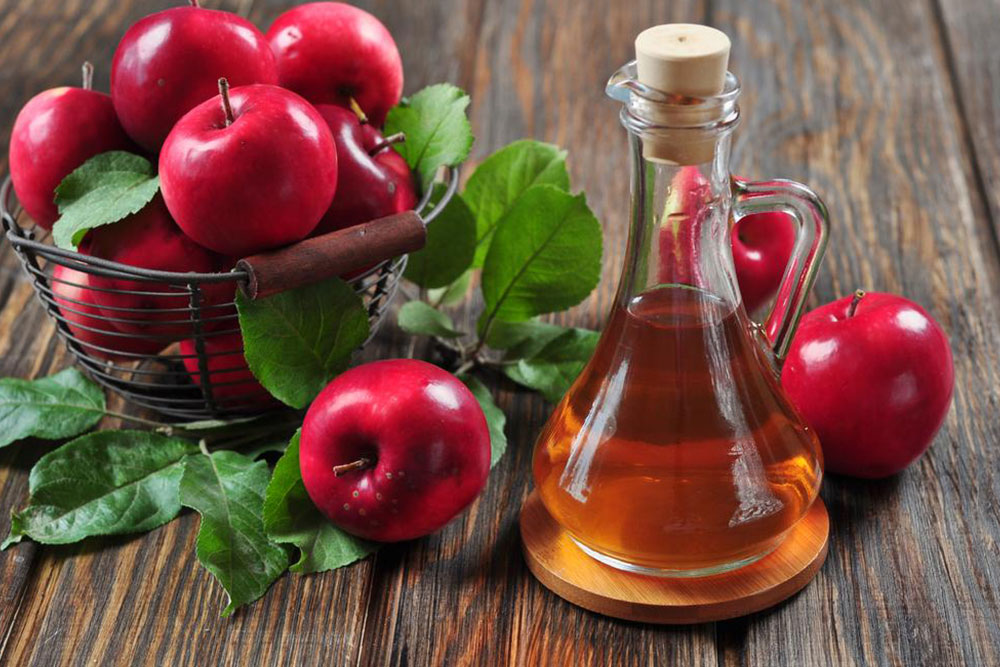Essential Superfoods to Support Cervical Cancer Prevention and Promote Women's Health
Discover the top superfoods that play a vital role in preventing cervical cancer. This comprehensive guide highlights nutrient-rich foods like carrots, green tea, asparagus, raspberries, and salmon. Learn how these foods support immune health, neutralize harmful free radicals, and inhibit cancer cell growth. Incorporate these powerhouses into your diet to boost your defenses against HPV-related cellular changes. Combined with regular health screenings and vaccinations, these dietary strategies can significantly lower your risk of developing cervical cancer and promote overall women's health. Make informed choices today for a healthier tomorrow.

Essential Superfoods to Support Cervical Cancer Prevention and Promote Women's Health
Maintaining a balanced and nutritious diet plays a pivotal role in overall health, particularly in reducing the risk of cervical cancer, one of the most prevalent cancers affecting women worldwide. Cervical cancer primarily develops from abnormal cells in the cervix, which connects the uterus to the vagina. Its primary cause is persistent infection with human papillomavirus (HPV), a common sexually transmitted infection. While the immune system can often combat HPV effectively, persistent infections can evade immune defenses, leading over time to cellular changes that may develop into cervical cancer.
In addition to regular screening procedures such as Pap smears and HPV vaccinations, dietary choices significantly influence cervical cancer risk reduction. Specific foods contain bioactive compounds that bolster the immune response, neutralize free radicals, and support cellular repair, making them powerful allies in cancer prevention. Incorporating certain superfoods into your daily diet not only enhances overall health but also provides targeted protection against HPV-related cellular abnormalities.
Research consistently highlights that diets rich in fruits and vegetables confer protective benefits against various cancers, including cervical cancer. These foods are abundant in antioxidants—such as carotenoids, flavonoids, and folate—that combat oxidative stress, reduce inflammation, and support healthy cell function. Strategic dietary choices, paired with preventive measures like vaccinations and screenings, can significantly lower cervical cancer incidence and improve women's health outcomes. The following superfoods stand out due to their potent bioactive content and health-promoting properties:
Carrots
Carrots are renowned for their high beta-carotene content, a precursor to vitamin A, which is vital for immune health and cellular growth regulation. Beyond their benefits for eyesight, carrots possess anti-cancer properties, primarily through their ability to inhibit the proliferation of malignant cells. Their versatility allows them to be enjoyed raw in salads or as part of cooked dishes, making them an effortless addition to daily meals. Regular carrot consumption has been linked to reduced risks of various cancers, including cervical cancer, owing to their antioxidant-rich profile.
Green Tea
Green tea is one of the most studied beverages for its anti-cancer effects, thanks to its high concentration of polyphenols, especially epigallocatechin gallate (EGCG). These antioxidants are capable of preventing the initiation and progression of cancer by inducing apoptosis in abnormal cells and inhibiting angiogenesis—the formation of new blood vessels that tumors need to grow. Additionally, green tea can suppress urokinase, an enzyme involved in cancer metastasis, thereby reducing the spread of malignant cells. Incorporating green tea into your routine can be a simple yet effective step towards cervical cancer prevention.
Asparagus
This vegetable is a potent source of glutathione, a critical antioxidant involved in detoxifying carcinogens and protecting cellular DNA from oxidative damage. Asparagus also contains vitamins A, C, E, and folate, supporting immune function and DNA repair mechanisms. Its low pesticide residue makes it a healthy choice, even when not organic. Regular intake of asparagus can bolster the body's defenses against HPV infections and improve immune surveillance, reducing the likelihood of cellular mutations that lead to cancer.
Raspberries
Among berries, raspberries stand out due to their rich ellagic acid content, a phenolic compound with potent anti-mutagenic and anti-carcinogenic properties. Ellagic acid has been shown to interfere with the DNA damage process and induce apoptosis in cancerous cells. For women concerned about cervical health, consuming raspberries regularly can inhibit the progression of HPV-infected cells and potentially reduce the risk of cervical cancer development. Enjoy raspberries fresh, or add them to smoothies, salads, and desserts for a delicious health boost.
Salmon
Salmon is a fatty fish loaded with omega-3 fatty acids, known for their anti-inflammatory effects and ability to modulate immune responses. These essential fats help disrupt the cancer cell cycle and prevent tumor growth. Salmon also contains astaxanthin, a carotenoid with powerful antioxidant properties that neutralize free radicals responsible for DNA damage. Wild-caught salmon typically has higher levels of astaxanthin compared to farmed varieties, making it the preferable choice for maximizing health benefits. Including salmon in your diet a few times a week can reinforce cellular defenses and promote overall health.
Incorporating these superfoods into a balanced, nutrient-rich diet can serve as an effective strategy for supporting cervical health and potentially reducing the risk of cancer development. Alongside medical preventive measures, such as HPV vaccination and regular screenings, dietary choices empower women to take control of their health. A focus on antioxidants, detoxifiers, and immune-boosting foods as part of a holistic health plan can make a substantial difference in maintaining cervical health and overall well-being. Aim to include a variety of these nutrient-dense foods daily for best results and a healthier future.





